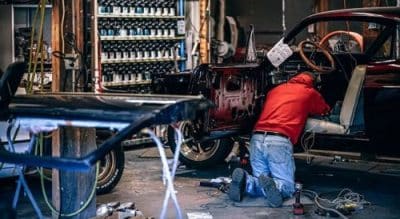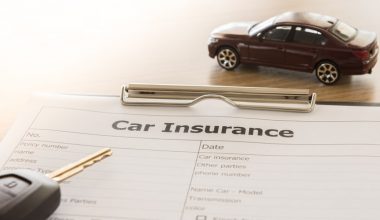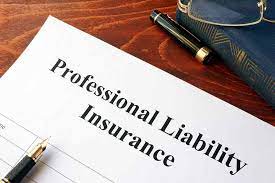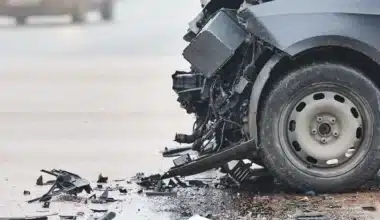We’re all deal hunters, no matter how frugal or frivolous we are. Purchasing a vehicle is no exception. Simply put, we want the finest possible quality at the lowest possible cost. When you’re looking to save a lot of money, you can consider looking into used salvage cars with rebuilt titles. Is a rebuilt title car a smart investment considering the insurance options? Or are they a hoax that should be avoided at all costs? Let’s take a closer look at this.
What Is a Rebuilt Title?
Most used vehicles come with a “clean” title, which ensures that the new owner is obtaining a vehicle in good functioning shape. However, if a used vehicle has ever been in a catastrophic accident, undergone a manufacturer buyback as a result of a successful lemon law claim, or had its odometer rolled back, it may come with a rebuilt title.
A rebuilt title usually signifies that the car was so extensively damaged that it was declared a true total loss—or “totaled”—by an auto insurance company at some point. If the same vehicle is later sold with a rebuilt title, it means that someone went through the trouble of repairing or rebuilding it. Depending on local rules, the restored vehicle will almost certainly need to be inspected before it can be driven on public roads.
What Is A Salvage Title?
A vehicle can also be “totaled” if the cost of repairs exceeds a specific percentage of its worth. The precise percentage rate varies by state, although it is usually around 70%.
Regardless of how a car is totaled, its clean title is forfeited at this time. Rather, the state creates a new salvage title. This title is designed to alert potential buyers that the car is no longer safe to drive. A vehicle with a salvage title cannot be driven or registered in most states.
In this instance, the insurance company will either sell the car for scrap or sell it to a buyer who wants to fix it. If the owner does not have comprehensive insurance, they will have to split it out, fix it, or sell it on their own. This is why you’ll find a lot of cars with salvage titles on websites like Craigslist.
If a car with a salvage title is repaired to the point where it can be driven, it will be given a rebuilt title. In most cases, an inspection will be required as part of this process to confirm that it is safe to drive.
Keep in mind that this varies by state; different states have varied inspection requirements, and a few states do not require any inspection at all. When in doubt, look into your local legislation.
Related: SALVAGE TITLE CARS: Meaning, Pros, and Cons
Salvage Title vs Rebuilt Title
It takes a lot of work to get a totaled car operational enough to acquire a rebuilt title. When an insurance company declares a car a total loss, it is issued a salvage title. These vehicles are judged dangerous for use on public roads, and the salvage title alerts potential buyers that the vehicle has been seriously damaged.
Salvage vehicles are often sold “as is,” with the expectation that whoever buys one will either attempt to restore it or utilize the parts to fix other vehicles. If it’s the former, the new owner can request for a rebuilt title from their state’s department of motor vehicles once the repairs are finished.
Some dishonest vendors may try to conceal the fact that a car has been wrecked by transferring it to another state, fixing it, and applying for a new, clean title—a practice known as “title washing.”
To combat this deceit, the National Insurance Crime Bureau (NICB) provides a free online service called VINCheck. This allows potential buyers to check the car’s vehicle identifying number (VIN) to discover if it has previously been reported as a total loss by an insurance carrier.
How does a Car Obtain a Salvage or Rebuilt Title?
If a vehicle sustains substantial damage, with repairs totaling between 70% and 90% of the car’s worth, the insurance company may declare the vehicle a total loss. Once that judgment is made, a state motor vehicle department changes the car’s title from clean to salvage or trash. After receiving a salvage title, you are not permitted to drive, sell, or register the vehicle until it has been repaired.
At this point, the salvage vehicle is often sold by the insurance to a third party interested in fixing it or disassembling it for parts. If the vehicle is repaired, it must meet safety standards before being issued a rebuilt title by the state’s motor vehicle administration. By issuing a rebuilt title to the repaired vehicle, the buyer has more information about its past.
Related: Hail Damage Car: Insurance claims, costs of repair (+top picks for the sales)
What effect does a Rebuilt Title have on the Value of a Car?
Because of the considerable damage, a vehicle with a rebuilt title will most likely have a lower market value. When compared to identical models with clean titles, a car with a rebuilt title may be worth 20% to 40% less, adding to thousands of dollars.
Should you Purchase a Car with a Rebuilt Title?
This is dependent on your circumstances. On the one hand, buying a car with this title could be a terrific deal. Vehicles must pass stringent tests in various states before receiving a rebuilt title. And because the vehicle once had a salvage title, the resale value could be significantly lower. This implies you might save a lot of money.
However, there may be certain disadvantages. Just because a car has passed state inspection does not guarantee that it will be safe for the long haul. Furthermore, getting insurance for your vehicle may be tricky. And, returning to value, while you may get a fantastic price on it when you buy it, if you plan to sell it, you will probably not get nearly as much as you would with a vehicle with a clean title.
A vehicle with a rebuilt title may be much more difficult to sell than one with a clean title. Buyers should be skeptical of rebuilt titles since they usually indicate that the car has been in a bad accident or has been wrecked in the past. Potential purchasers wishing to invest in a vehicle should be aware of rebuilt titles due to any complications that may arise from previous incidents.
Before purchasing a vehicle with a rebuilt title, consider the following:
- How was the vehicle damaged?
- The severity of the damage
- The vehicle repair process and the location of the repair
- Whether the vehicle was evaluated by a professional or a certified mechanic
- Your insurance company’s willingness to cover a vehicle with a rebuilt title.
The Benefits and Drawbacks of a Rebuilt Title
Despite their blemished history, purchasing a vehicle with a rebuilt title isn’t always a bad decision. Here are some advantages and disadvantages, beginning with the advantages:
Advantages of Purchasing a Vehicle with a Rebuilt Title
#1. The price is significantly reduced.
A car with a rebuilt title should sell for significantly less than a comparable model with a clean title.
#2. The damage might not be as severe as you anticipated.
There are numerous reasons why a car may be ruled a total loss. If the rebuilt car is structurally solid and only required a few costly new parts that the insurance company refused to pay for, it may be alright. However, if it sustained more significant damage, such as a warped or fractured frame, it may be a risk not worth attempting. Check the VIN at the NICB site and ask why the car has to be rebuilt and what was done to repair the damage. If you aren’t an automotive specialist, consider hiring a reputable mechanic to inspect it for you.
Disadvantages of Purchasing a Car with a Rebuilt Title
#1. Damages from the past may resurface at a later date.
Even if you try to thoroughly inspect the car before finishing the transaction, cars are sophisticated devices with many moving parts, and things might go wrong. Mechanical problems that looked to be resolved could end up costing you hundreds or thousands of dollars in repairs. Flooding is one sort of damage to be very cautious of because it may not be immediately apparent but can cause big difficulties when metal corrodes. Consumer Reports has a checklist for identifying a flood-damaged car.
#2. It may be more difficult to obtain insurance.
Your car may be in excellent condition, but some insurance companies consider a rebuilt title to be radioactive. In some situations, an insurer may refuse to provide you with collision or comprehensive insurance, which covers damage to your car but will sell you liability insurance, which covers damage you cause to others or their property. Liability coverage is required in almost every state, although collision and comprehensive coverage are optional.
#3. It can be difficult to sell.
When you no longer require the vehicle or have decided to trade it in, the rebuilt title on your car may deter potential purchasers.
How to tell If a Rebuilt Title Car is Good for you
If you’ve found a car with a branded title that you’re interested in, pause for a moment and take a big breath. Before buying salvage or rebuilt title car, there are a few questions you should ask.
- “May I have a look at the receipts?” If the current owner had the car fixed, ask for a complete breakdown of the repairs to see how thoroughly they were done and if quality parts were utilized by qualified experts.
- “Where did the repairs get finished?” Check if the repairs were performed by a reliable shop. You’re taking a gamble if it was done by a do-it-yourself mechanic.
- “Do you have it insured as a branded title?” If the present owner was able to insure it, you can obtain an idea if a rebuilt car is insurable. If they haven’t, this should raise red flags.
- “Was there any damage to the frame or the powertrain?” The frame, as well as the engine and transmission, are two areas where people try to take costs on repairs. If any of these were damaged in the collision, proceed with caution.
- “Have you calculated the cost of the repairs?” If you’re considering about purchasing a salvage car, find out if the seller has previously had repairs estimated. If this is the case, consider the likelihood of additional costs due to hidden damage.
Even if you get all of the proper answers to these questions, we recommend hiring a reputable mechanic to inspect to assess how thoroughly the car was fixed or restored. The last thing you want is to get a lemon car. Don’t forget to take the car for several test drives to ensure that it handles properly, runs smoothly, and doesn’t produce any strange noises!
Don’t be duped by Title Washing.
Unfortunately, there are unscrupulous dealers on the market who use a method known as “title washing.” This illegal procedure is removing a branded title by transporting and insuring it out of the province. Because most provinces have their methods for transferring titles, it is possible to transfer a car without revealing its salvage title or rebuilt status. These shady characters then offer it as a secondhand car with a clean title, duping consumers out of thousands of dollars.
However, you can avoid being duped by title washing while searching for a used car. A totaled vehicle is noted on a vehicle history report, such as Carfax.
Before you buy a vehicle, make sure you get a vehicle history report on it.
Record the 17-digit VIN situated on the driver’s side of the dashboard, visible through the windscreen, to check a car’s title. Enter it into Carfax to get a complete history report on the vehicle, including repairs, title status, and any other red flags.
The Procedure for Rebuilding a Title
Here’s a quick rundown of the actions you’ll usually need to do to remove a salvage title.
#1. Obtain the Vehicle
This may or may not be as straightforward as it appears. Some states will only permit licensed rebuilders to buy or own a salvage title car. If such is the case in your state, you will only be able to possess the vehicle when it has been fixed, inspected, and rebranded.
#2. Vehicle Repair
Make sure you understand what you’re doing, or have the vehicle repaired by a professional mechanic who does. Keep any documents on the vehicle, and take plenty of pictures before and during the repair process.
#3. Obtain the Inspection
Obtain and fill out the relevant DMV forms to have the car examined. This is where all of your documents and images come in handy. As part of the process, the DMV will most likely require you to submit your bill of sale, salvage title, pictures, and other papers. After you’ve completed the paperwork, set up an inspection and have the vehicle inspected.
Remember that you cannot legally drive the vehicle to the inspection facility, thus it will most likely have to be towed there.
Once it has passed the inspection (and you have paid the inspection fees), the inspector may place a decal confirming that it has passed to the vehicle.
#4. Submit the Final Paperwork
Your next step will be to apply for the rebuilt title, which will need the completion of additional forms and the payment of additional expenses. You should then be given a title with a statement on it indicating that the vehicle has been rebuilt.
If your vehicle obtained its salvage title in another state, you may need to have it inspected and rebranded in that state before you can register it in your home state. Before making a purchase, check the laws in your state.
Is it Difficult to Insure a Rebuilt Car?
Rebuilt cars are frequently difficult to insure. Many insurers will only provide liability coverage on rebuilt vehicles, rather than comprehensive coverage. If you do locate comprehensive and collision coverage, expect to spend more rates and receive fewer rewards.
This is due to two factors:
- A car with a rebuilt title is less value, and as a result, the rewards are reduced.
- There could have been hidden damage that was missed during the inspection. As a result, there is an increased likelihood of failure.
Obtaining Insurance with a Rebuilt Title
Salvage title insurance may be difficult to obtain because the vehicle is often unsafe to drive. Rebuilt title insurance, on the other hand, is easier to obtain unlike salvage, but certain restrictions still apply.
Even after the necessary repairs have been completed, some insurers may only provide liability coverage. Many insurance companies will not provide complete coverage for a salvage rebuilt vehicle since it is difficult to analyze all of the vehicle’s pre-existing damage. Collision and comprehensive coverage, both of which are optional on conventional auto insurance policies, are unlikely to be included with this type of title.
Because a rebuilt title indicates that the vehicle is no longer in perfect, undamaged condition, its value is significantly reduced. Furthermore, because a rebuilt vehicle may have concealed or undetected damage, insurance companies will see this type of title as more likely to represent a risk on the road.
After you’ve located an insurance provider willing to insure a car with a rebuilt title, you may be able to take additional steps to obtain additional coverage. You may be able to give extra information to your insurer to verify that a vehicle with a rebuilt title is insurable. This contains a declaration from a skilled mechanic certifying that your vehicle is in good functioning order, images of the vehicle’s current condition, and repair invoices, which are standard when purchasing a rebuilt title vehicle.
Estimate from the Insurance Company
Once your car has been damaged, it is up to the insurance provider to decide whether or not to total it. In general, your car must have received damage equal to 75-90 percent of its total value to be totaled.
If the insurance adjustor appointed to inspect your car concludes that it is a total loss, you will normally be granted a salvage certificate, which is not the same as a salvage title.
Once you’ve obtained the salvage certificate, the real work begins.
Types of Car Titles
The title of a car is a legal document that establishes who owns the car. If your auto lender has a lien on your car, it may keep the title until you pay off the debt in full, or it may be transferred to you by a seller if you buy a car outright in cash. The title of a car might reveal crucial information about the vehicle.
Clean Title
A clean title means that no records are indicating that a vehicle is or has ever been unsafe to operate. Keep in mind that a clean title does not guarantee that the vehicle you’re contemplating won’t have any mechanical issues, but it does guarantee that the vehicle hasn’t been totaled or suffered substantial damage.
Other Kinds of Titles
Titles can mean a variety of things, and the definitions vary by jurisdiction. In California, for example, a junk title signifies that the vehicle has been destroyed by an individual or dismantler. If the title is marked as junk or scrap in Michigan, the vehicle cannot be titled again.
It may be difficult to determine whether a car has previously been awarded a title brand or a trash title. The Federal Trade Commission advises seeking an independent analysis of a vehicle’s history and using reputable sources to see whether there is anything unusual about the car’s past. For instance, the Department of Justice’s National Motor Vehicle Title Information System charges a fee to obtain information on a vehicle’s title and some damage history.
How Can You Tell if a Car Title Is Genuine?
Mr. Grable might have avoided a lot of trouble by purchasing a VIN Check and a Vehicle Accident Report. It’s the single most prudent thing you can do before purchasing a used car, and it’s the only method to ensure that a clear car title is exactly what it looks to be.
Is it worthwhile to get a vehicle history report?
When purchasing a new or used car, licensing, registration and taxes account for roughly 10% of the total cost. Unexpected salvage history can lead a vehicle to lose up to 40% of its value; knowing about it ahead of time can keep you from making a disastrous purchase. With half of your investment on the line, it’s a no-brainer to spend a few bucks on a vehicle history check.
Believe on your Instincts.
Even if you’re standing in front of your ideal car with cash in hand, you can always walk away from a purchase. Remember that no matter how appealing the seller’s explanation sounds if the evidence does not add up. If you have a bad feeling about a vehicle for whatever reason, go with your gut and walk away.
How do I obtain a rebuilt title for a car I’ve rebuilt myself?
To obtain a rebuilt title for a car that you’ve rebuilt yourself, you’ll need to complete the necessary inspections and provide proof of ownership, as well as any other required documentation. In some cases, you may also need to pass an emissions test. Contact your local DMV for specific requirements in your state.
What is the difference between a branded title and a rebuilt title?
A branded title is a title that has been marked with a specific designation, such as “salvage” or “flood.” A rebuilt title is a title that has been issued after a car has been reconstructed following damage from an accident or natural disaster. In other words, a rebuilt title is a type of branded title.
What are the fees involved in getting a rebuilt title for a car?
The fees for getting a rebuilt title for a car can vary depending on your state and the specific requirements, but you can expect to pay a fee for the inspection, as well as any additional administrative fees. Contact your local DMV for more information on the fees involved in your state.
How long does it take to get a rebuilt title for a car?
The amount of time it takes to get a rebuilt title for a car can vary depending on your state and the specific requirements, but you can expect the process to take several weeks. Contact your local DMV for a more accurate estimate of the timeline in your state.
Can a rebuilt title car be insured?
Yes, a rebuilt title car can be insured, but you may have difficulty finding an insurer that will cover it. Many insurance companies consider rebuilt title cars to be a higher risk, and may charge higher rates or refuse to cover them altogether.
Can a vehicle with a rebuilt title pass a state inspection?
Yes, a vehicle with a rebuilt title can pass a state inspection if it meets the state’s requirements for roadworthiness.
What should I look for when buying a vehicle with a rebuilt title?
When buying a vehicle with a rebuilt title, it is important to thoroughly inspect the vehicle, including checking for any signs of damage, corrosion, or substandard repairs.
Are there any special requirements for owning a vehicle with a rebuilt title?
Owning a vehicle with a rebuilt title may come with certain restrictions, such as not being able to be registered in certain states.
Can I register a vehicle with a rebuilt title in another state?
It depends on the state, but in some cases, you may be able to register a vehicle with a rebuilt title in another state if it meets the state’s requirements.
Is it more difficult to get a rebuilt title for a vehicle?
It may be more difficult to get a rebuilt title for a vehicle if it has extensive damage or does not meet the state’s requirements for roadworthiness.
Conclusion
It’s up to you if it’s worthwhile to purchase a car with a rebuilt title. But one thing is certain: Before you buy anything, have it inspected by a certified mechanic. This will assist identify obvious problems, and the technician may be able to provide insight into other costs you may encounter in the future.
Finally, before purchasing a car with a rebuilt title, check with your insurance carrier. Finding an insurance provider ready to insure a car with a rebuilt title can be tricky. The last thing you want to do is buy a cheap car only to discover that you can’t drive it because you don’t have insurance.
Cars with rebuilt titles can provide the dependability you require to drive away with confidence. If you want to learn more about these vehicles or how our staff can assist you in finding the right used car at the right price and with the appropriate financing, please call us now!
Rebuilt Title FAQ’s
Why is a rebuilt title bad?
You might believe that because a car with a rebuilt title has been in an accident bad enough to earn it a salvage title, you should avoid it entirely. After all, even if repairs were thorough enough to receive a rebuilt title, such damage can be detrimental to a car’s structural stability.
Can a rebuilt title become a clean title?
Once a car is awarded a rebuilt title, it will never be issued a clean title again. Its title will always bear the mark. Even if a car has been rebuilt by qualified professional technicians, something hidden may have gone unnoticed.
Can you insure a rebuilt title?
Insurance for cars with rebuilt titles is possible, but the process is more onerous than for cars with clean titles. Most insurance companies will issue a liability policy for a rebuilt title car, but they are typically unwilling to issue a full coverage policy.
Can someone drive my car if they are not on my insurance?
If a friend or family member is in an accident and is not insured, you must use your insurance. Unless you have directly prohibited that driver from the use of your vehicle.
- SALVAGE TITLE CARS: Meaning, Pros, and Cons
- Chain Of Title: A Comprehensive Guide, Updated!!!
- Sewer Inspection: Video Costs, Lateral Inspection (+ overview of best Inspection company)
- Sewer Scope: Inspections, Costs & How to detect Scams
- Hail Damage Car: Insurance Claims, Costs of repair (+top picks for the sales)






